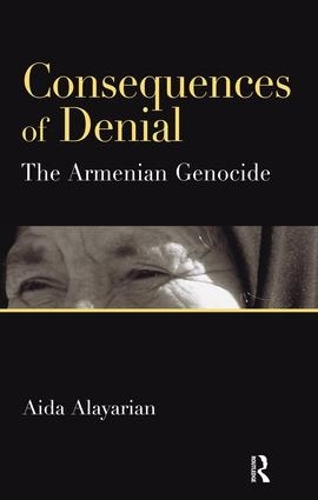
Consequences of Denial: The Armenian Genocide
Series: English
"Consequences of Denial" provides some awareness and understanding of the horrendous tragedy of the Armenian genocide. This book illuminates the little known fact that over two million innocent Armenians died at the hands of the Ottoman Empire between 1894 and 1922: a genocide that has been, and continues to be, denied by successive Turkish governments. In this book, the author demonstrates the ne
NaN
VOLUME
English
Paperback

"Consequences of Denial" provides some awareness and understanding of the horrendous tragedy of the Armenian genocide. This book illuminates the little known fact that over two million innocent Armenians died at the hands of the Ottoman Empire between 1894 and 1922: a genocide that has been, and continues to be, denied by successive Turkish governments. In this book, the author demonstrates the need not only for remembrance, but first and foremost for the acknowledgement of genocides, from government level downwards. Only by taking adequate steps at personal, group, national and international levels to acknowledge such massacres-and the trauma they create-can humankind attempt to prevent such atrocities from ever happening again. By documenting the psychological effects of the forgotten Armenian genocide and by linking these effects to cross-generational trauma and processes of response and denial, this book sheds light from a psychoanalytic perspective on an insufficiently researched aspect of this genocide."This book is one of the very few books highlighting the long term psychological plight of forgotten human atrocities and genocide. The importance of the book comes not only as a reminder of the forgotten human tragedies and genocide it also sheds a light to new role of mental health professionals in understanding the psychological consequences of mass trauma and victimization. It also provides directions to proactive measures in preventing human sufferings.The negative impact of denying human sufferings would strengthen victimization process and enhance the cycle of violence. The clear and easy psychological analysis and straightforward definitions of trauma, victimization and genocide make this book useful for scholars interested in peace and reconciliation such as researchers, policy makers, students and many others.As a Palestinian, I was amazed to read the real and logic psychological analysis of trauma, denial, victimization and forgiveness. The unresolved psychological consequences of genocide, loss at individual and community levels, continuous and repetitive trauma might also strengthenhopelessness, feeling of victimization that transmit from one generation to another and might to lead to suspicions of the other's motivations.The book gives noticeable lessons on how to pave the road towards peace and reconciliation: acknowledging human atrocities, apology for survivors and their families, and recognition of others are steps towards forgiveness and reconciliation." -- Abdel Hamid Afana, Ph.D.President of the International Rehabilitation Council for Torture Victims (IRCT)
Price Comparison [India]
In This Series
Bestseller Manga
Trending NEWS




















